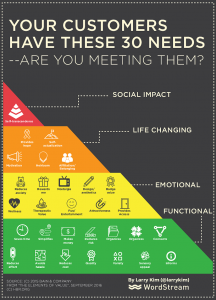Real-time data and personalization increase conversions.
While many marketing technology tactics have changed the past two decades to reflect a faster-paced society and advances in technology, the use of affiliate marketing channels has remained relatively the same in terms of system and structure.
“It is a business development channel that has never truly been optimized by use of technology,” said Matt Gilbert, CEO of Pepperjam, an affiliate marketing technology and services company. “There hasn’t been any automation built into this channel.”
According to Gilbert, the straightforward, last-click attribution model for coupon and cashback partners in affiliate marketing remains immutable to change, but that stability has been a benefit since the COVID outbreak as it remains a dependable, if outdated, system.
However, some things have changed. “The most effective affiliate marketing programs now make partner discovery easy for marketers,” said Gilbert. “They do this by using data to recruit and not relying solely on traditional interactions.”
Enhancing affiliate marketing
“I have always seen promise in this channel,” said Michael Jaconi, CEO of Button, a mobile commerce technology company that offers deep linking and app-tracking capability for affiliate channels through its Reach product. “While COVID has decimated budgets, we have seen that affiliate marketing spend has been able to be maintained because of its profitability.”
So how can affiliate marketing channels be enhanced? Jaconi thinks it starts with how affiliate marketing channels are operated.
“If marketers can spend the same, and run [affiliate marketing programs] incrementally, this is when we see the maximum return,” said Jaconi, “because the marketers can see results from data, control the campaign, and increase real-time capabilities to make this work on a macro scale. This is the evolution from a usually static dynamic, and this is how marketers should look at using affiliate marketing from here on out.”
By reviewing affiliate marketing campaigns incrementally, marketers are able to identify if buyers are first-time, lapsed or existing customers, and modify the campaign to the segments that are producing the most conversions. With data dictating where and how to maximize investment, marketers can have more confidence in increasing budget spend, and are able easily to show were the campaign value is originating from.
“Right now we find that marketers spend 15% of their budget on affiliate marketing,” said Jaconi. “We believe that will increase to 50% in five years.”
Affiliate automation and personalization
The ability for affiliate marketing as a whole to become more agile and automated based on real-time data is also in Pepperjam’s sights.
“A lot of manual work needs to be automated to diversify partner types,” said Gilbert. “Those who automate, and make the process more efficient and simple, open themselves up to partner with new brands who have not played in the space.”
Gilbert recommends that marketers base affiliate marketing campaign strategy on buying behavior trends and origin of engagement more than individual demographics. Industry events and conferences, as well geographic-based outreach campaigns can often be the foundation of successful affiliate marketing campaigns. Those origins of successful engagement should dictate future buying strategy, more than solely focusing on individual demographic outreach.
Pepperjam uses an internal graph to gauge the effectiveness of affiliate marketing efficiency, with the ‘X’ axis representing scale and the ‘Y’ axis representing automation. The emphasis on automation and scale should not sacrifice compliance and brand safety.
“Innovation in the tech world has been all about scale and automation,” said Gilbert. “Marketers need to be ready to demonstrate both to senior executives and the enterprise overall.”
Creating automated content for the segments that are converting can be the product of incremental campaigns using real-time data. “For most marketers there has not been that opportunity to take a [affiliate marketing] channel that is already profitable and make it more sophisticated with customization and personalization,” said Jaconi. “Use a customizable engine, and make separate offers based on user level; it is a powerful force. You can have differentiated offers, including exclusive offers at separate rates because that differentiation is powerful content.”
Changing for the better
Jaconi said he believes more members of senior management and executives will pay attention to affiliate marketing in the near future because of its high ROI. This means marketers must be ready to show direct results to the bottom line as well as the flexibility to modify campaign targets based on real-time data and which segments are actually converting.
“I think as budgets are cut, you will also see more budgets being transferred to affiliate marketing,” said Jaconi. “Once the brand sees a better ROI and targeted spend, it opens up the floodgates for spending opportunities.”
Affiliate marketing may see an increased presence in marketer’s budgets in upcoming years as predicted, and by making these new enhancements to your affiliate marketing program brands have quicker ability to scale to match a sudden growth in consumer demand. By reporting the revenue generated by being able to answer the demand, your executive c-suite should also quickly become fans of affiliate marketing.
This story first appeared on MarTech Today.
Marketing Land – Internet Marketing News, Strategies & Tips
(15)
Report Post






